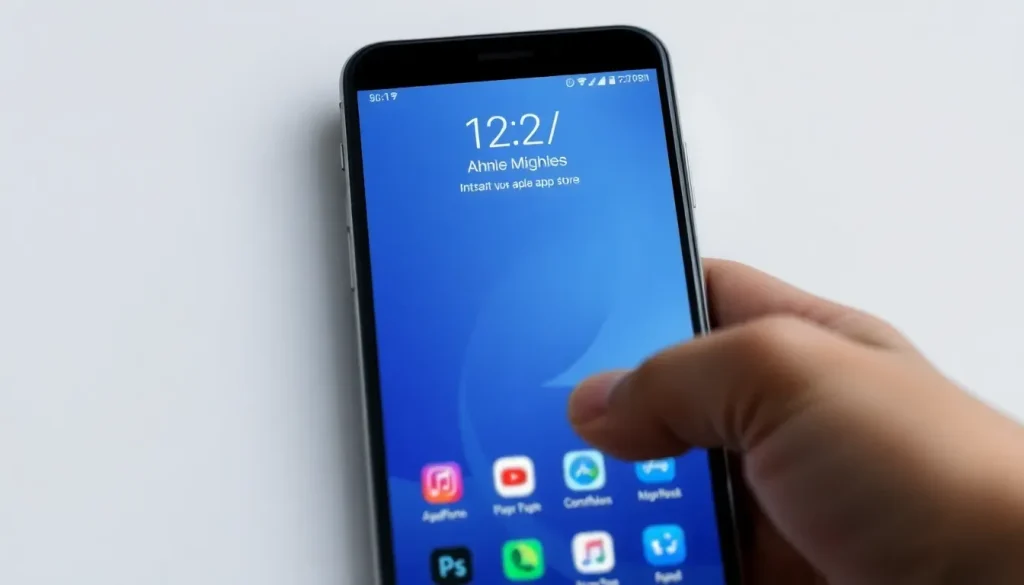Epic complains about 6-second installation of third-party app store

In the ongoing battle between Epic Games and Apple, the stakes are high as both companies navigate the complexities of app distribution and user experience. Epic Games has recently turned its focus toward the user installation process of third-party app stores, claiming that Apple’s design choices create unnecessary barriers. This article delves into the intricacies of this dispute, examining the claims made by Epic Games and the implications for users and developers alike.
The Context of Epic Games vs. Apple
Epic Games has been vocal in its criticisms of Apple, challenging its App Store policies for years. This conflict intensified with the launch of Fortnite, which led to a legal showdown over app distribution and in-app purchases. The heart of the matter lies in how both companies handle user access to alternative app stores.
Recently, Epic issued a statement asserting that Apple’s design tactics deliberately discourage users from installing its store. This claim stems from a broader conversation about competition and consumer choice in the digital marketplace.
Installation Process: A Closer Look
Epic Games has highlighted that installing its store on iOS now requires just six steps. However, they argue that this process is still cumbersome compared to downloading apps directly from Apple’s App Store. The steps outlined by Epic include:
- Tapping "Install"
- Tapping "Allow" when prompted about the App Marketplace
- Confirming installation with the side button and user authentication
- Waiting for the installation to complete
- Tapping to open the Epic Games store
- Tapping "Get Started" to begin.
While Epic claims these steps are excessive, one could argue that they are quite standard for any app installation. For comparison, the time it takes to install an app from Apple's App Store is roughly four seconds, while a third-party app store takes about six seconds, with only one additional tap involved.
Epic's Claims of Deceptive Design
Epic Games has accused Apple of employing deceptive design practices that lead to a high user drop-off rate during the installation of the Epic Games Store. They reported a 60% decrease in user drop-off after Apple updated its installation process, suggesting that prior to these changes, around 65% of users abandoned the installation attempt.
However, the notion of "deceptive design" is not new to Epic. In 2023, the company was fined $245 million by the Federal Trade Commission (FTC) for employing dark patterns in Fortnite that misled users into making unintended purchases. This raises questions about the validity of Epic's current claims against Apple.
What Does Deceptive Design Mean in This Context?
Deceptive design, in the realm of software and applications, refers to practices that manipulate user behavior through misleading interfaces. While Epic Games critiques Apple's design choices, it has previously engaged in similar tactics. The discrepancy in their positions raises an essential discussion about ethical design standards in the tech industry.
For users, understanding these concepts is vital. Some common examples of deceptive design include:
- Confusing button placements that mislead users into unintended actions.
- Using language that obscures terms of service or privacy policies.
- Creating a sense of urgency that pressures users into making quick decisions.
Is Epic's Argument Justified?
While Epic Games has made strides in reducing the drop-off rate for its store installation, the argument that Apple’s six-step process is unlawful might be an exaggeration. Apple’s adjustments have made it easier for users, and the fact that only three of the steps require user interaction could indicate that the process is fairly user-friendly.
Critics argue that the onus should not fall solely on Apple for developers' decisions regarding app availability on the Epic Games Store. Many developers prefer distributing their apps through the Apple App Store due to its extensive reach and established user base, which results in higher sales and visibility.
Industry Implications and Developer Perspectives
The ongoing battle between Epic Games and Apple has significant implications for the app ecosystem. Developers are left navigating a complex landscape where both companies impose their own fees and regulations:
- Apple takes a commission from app sales, which can be substantial.
- Epic also imposes fees on developers who choose to distribute their apps through its platform.
- Developers may face challenges in gaining visibility on alternative platforms compared to established app stores.
As this dispute continues, the broader industry is watching closely. The outcome of this battle could redefine how app distribution works, impacting developers and consumers alike.
Public Opinion and Future Prospects
Epic Games is now appealing to the court of public opinion, emphasizing user experience and competition. Their position seeks to rally support from consumers who value freedom in choosing where to download apps. However, this approach may also backfire if users perceive Epic as being overly critical without addressing its own past missteps.
As the digital landscape evolves, the question remains: how will these changes affect user choice and developer opportunities? The resolution of this conflict may set a precedent for how technology companies operate in the future, paving the way for either increased competition or further consolidation.
For those interested in a more detailed analysis of the legal ramifications surrounding this dispute, check out this insightful video:




Leave a Reply